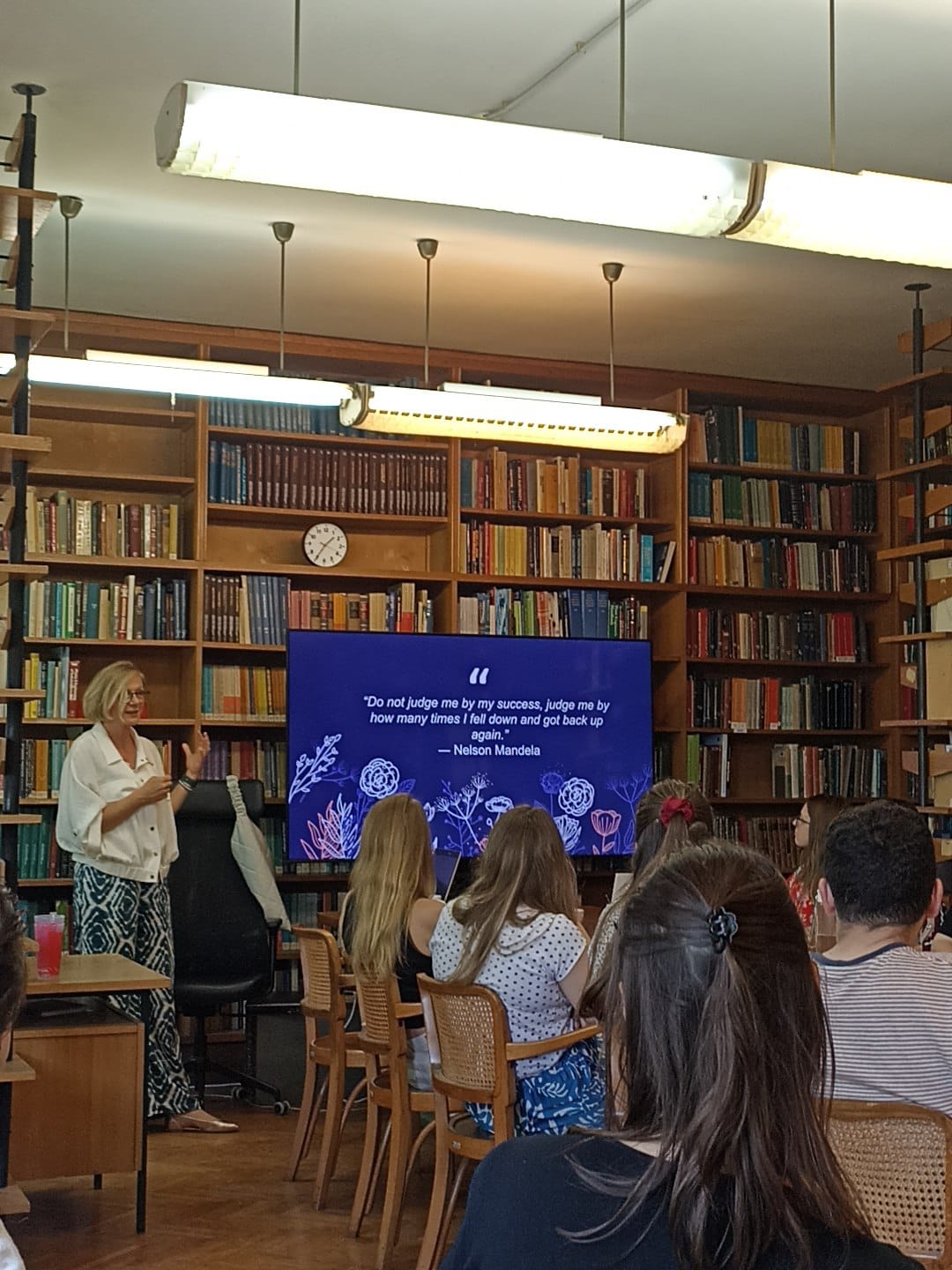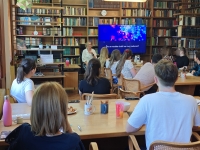The workshop was led by Dr. Maja Tadić Vujčić, psychologist and senior research associate at the Ivo Pilar Institute of Social Sciences, whose scientific work focuses on mental health and well-being in various contexts, especially in public sector jobs (primary and secondary schools, academia, healthcare institutions, state agencies). She currently leads a four-year project funded by the Croatian Science Foundation, titled “Well-being and Mental Health of Early-Career Researchers: A Longitudinal Study (ECR-WELL),” which examines the interplay between working conditions, personal characteristics, and the well-being and mental health of early-career researchers in Croatia.
This workshop was held as part of the activities of the European PATTERN project and thematically builds on Dr. Tadić Vujčić’s research within the ECR-WELL project. The workshop brought together doctoral and postdoctoral researchers, as well as other interested staff members of the Ruđer Bošković Institute. The focus was on understanding and empowering proactive strategies for coping with everyday challenges in scientific work.
Focus on Job Crafting – Shaping Work from Within
 Starting from increasingly common issues such as job insecurity, high demands and publication pressures, and limited institutional support, the workshop offered concrete solutions through the concept of job crafting. Participants, through a combination of theoretical introduction and practical exercises, learned how to make their daily scientific work more meaningful, sustainable, and aligned with their personal strengths, values, and goals.
Starting from increasingly common issues such as job insecurity, high demands and publication pressures, and limited institutional support, the workshop offered concrete solutions through the concept of job crafting. Participants, through a combination of theoretical introduction and practical exercises, learned how to make their daily scientific work more meaningful, sustainable, and aligned with their personal strengths, values, and goals.
The lecturer highlighted challenges such as maintaining motivation and curiosity without risking burnout, as well as the importance of emotional connection to work — emphasizing that engagement does not mean workaholism, and that it is important to know how to distance oneself from work and the pressures it brings.
Dr. Tadić Vujčić presented the main forms of job crafting:
- Task crafting – how to adjust the number, type, or way of performing tasks
- Relational crafting – how to build better relationships and communication in the workplace
- Cognitive crafting – how to change your own perception of the meaning and purpose of tasks, relationships, or the job itself
Through practical exercises and experience sharing, participants had the opportunity to reflect on how small changes in everyday work can increase their sense of control and meaning, and to realize that it is not always necessary to change everything—often, redefining just one aspect of the job is enough. The discussion covered personal resources and strengths such as motivation and proactivity, as well as external conditions that shape work experience, like autonomy, task variety, and interpersonal relationships. Challenges such as work overload, time pressure, and feelings of saturation and creative indifference were also addressed, with an emphasis on the importance of recognizing one’s own boundaries and resilience.
The Union in Support for Mental Health
Alongside the Center for Scientific Information at the Ruđer Bošković Institute, the Branch of the Independent Union of Science and Higher Education at the Institute played an important role in organizing this workshop, recognizing mental health as a key topic for the scientific community and expressing interest in hosting lectures and workshops of this kind. The excellent turnout and active participation confirmed the need for content that provides space for learning, sharing experiences, and developing personal strategies for coping with the challenges of scientific and academic work.
We thank all participants for their active involvement, and especially Dr. Maja Tadić Vujčić for her expertise and openness. We hope that the knowledge and skills gained will help in developing a more resilient, connected, and healthier scientific community.

